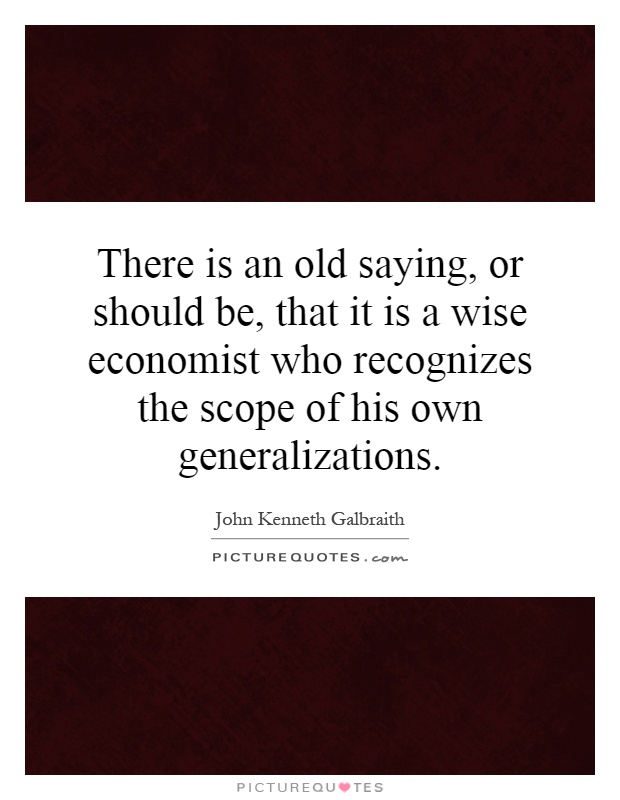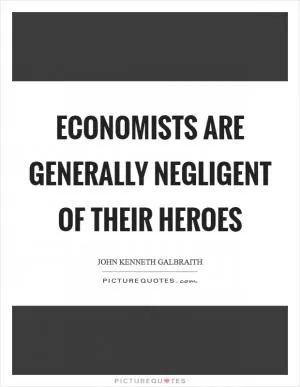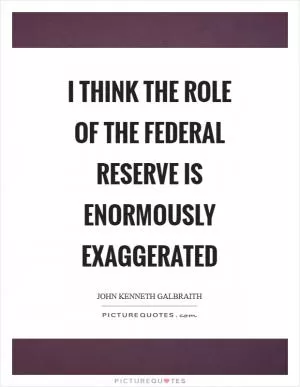There is an old saying, or should be, that it is a wise economist who recognizes the scope of his own generalizations

There is an old saying, or should be, that it is a wise economist who recognizes the scope of his own generalizations
John Kenneth Galbraith was a renowned economist who understood the importance of recognizing the limitations of one's own generalizations. He believed that it was crucial for economists to be aware of the scope of their theories and to acknowledge that they may not always hold true in every situation. Galbraith was known for his critical analysis of economic theories and his ability to challenge conventional wisdom.Galbraith understood that economics is a complex and ever-changing field, and that what may work in one situation may not necessarily work in another. He believed that economists should be humble in their approach and always be willing to reevaluate their assumptions and theories. This is why he emphasized the importance of recognizing the scope of one's own generalizations.
One of Galbraith's most famous works is his book "The Affluent Society," in which he critiqued the prevailing economic theories of the time. He argued that traditional economic measures such as GDP were not sufficient indicators of a society's well-being, and that economists needed to take into account factors such as income inequality and social welfare. Galbraith's work challenged the prevailing economic orthodoxy and forced economists to reconsider their assumptions.
Galbraith's emphasis on recognizing the limitations of economic theories is particularly relevant in today's world, where economic models are often used to make important policy decisions. It is crucial for economists to be aware of the scope of their generalizations and to understand that their theories may not always hold true in every situation. By being humble in their approach and willing to reevaluate their assumptions, economists can better understand the complexities of the economy and make more informed decisions.












 Friendship Quotes
Friendship Quotes Love Quotes
Love Quotes Life Quotes
Life Quotes Funny Quotes
Funny Quotes Motivational Quotes
Motivational Quotes Inspirational Quotes
Inspirational Quotes